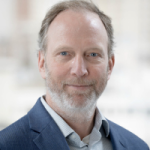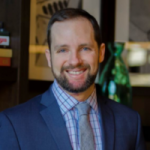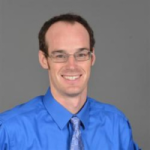States and utilities interested in reducing greenhouse gases (GHG) through energy efficiency programs have difficult decisions to make. These include how to set targets consistent with GHG reduction, how to measure progress toward those targets, and how to motivate these changes in the first place.
Join us for a webinar as we explore a new report that can help us answer these questions. Attendees will hear about multiple methods for setting GHG goals within energy efficiency programs, the various methods utilities can use to translate energy savings into GHG reductions, and what motivations, policies, targets, and equity considerations go into such a transition. We will also hear from expert speakers who will present a variety of geographic, technical, and policy perspectives on how energy efficiency can play its part in decarbonizing society.
Speakers:
Jeremy Petersen, DSM Technical Consultant, Xcel Energy
Jeremy has 25 years of experience at Xcel, with the first 10 years in load research and the past 15 years in demand side management (DSM). At Xcel, Jeremy is responsible for electric generation, transmission, and distribution impacts attributable to DSM portfolios across the company’s service territory, including Colorado, Minnesota, and New Mexico.
Jo Ann Bodemer, Esq., Director of Energy Efficiency, Massachusetts Department of Energy Resources
Jo Ann joined the Department of Energy Resources at a critical transition point in the Mass Save state energy efficiency programs to serve as DOER’s Director of Energy Efficiency, after a lengthy career focused on the delivery and development of energy efficiency programs and policy in the Commonwealth. Previously, while at the Office of the Attorney General, Jo Ann focused on issues relating to energy ratepayer advocacy, energy efficiency and the commonwealth’s transition away from fossil fuels. She also served as the state Attorney General Office’s representative on the Energy Efficiency Advisory Council and as the lead attorney participating in the Department of Public Utilities’ investigation into the impact of the commonwealth’s achievement of its 2050 climate mandates on local gas distribution operations. Jo Ann is admitted to practice in the state courts of the Commonwealth of Massachusetts, the state and federal courts of the State of New York, and the United States Supreme Court.
Eric Cutter, Partner, Energy and Environmental Economics (E3)
Eric leads E3’s practice area enabling distributed resources (DERs) to serve as valuable resources for electric utility integrated resource planning, distribution planning and decarbonization. He manages E3’s team performing robust technical, economic and policy analysis for state agencies, utilities, technology providers and automakers. Building on decades of experience in distributed resources, Eric is also leading work on valuation of vehicle grid integration, energy storage and flexible loads, with an emphasis on distribution planning. Prior to joining E3, he worked as an independent consultant in water resources for seven years, and at Pacific Gas & Electric for ten years.
Mike Specian, Utilities Manager, American Council for an Energy-Efficient Economy (ACEEE)
Mike’s research focuses on the role of energy efficiency within the evolving energy landscape, including policies and practices to maximize energy efficiency's potential to mitigate greenhouse gas emissions and adapt to a changing climate. Prior to joining ACEEE, Mike worked at the U.S. Department of Energy, where he facilitated behind-the-meter innovations to make buildings more energy efficient, resilient, and flexible for the evolving electricity grid. Mike holds a PhD in physics from Johns Hopkins University.
Moderator: Mark Kresowik, Senior Policy Director, American Council for an Energy-Efficient Economy (ACEEE)
Mark supports the success of the members of ACEEE’s policy team and our partners shaping decisions at the local, state, utility, and federal levels across every part of the economy as we accelerate ambition for improving energy efficiency and centering those most historically overburdened and underserved in our communities. Mark joined ACEEE in 2022.
By registering for this event, you are opting to receive future email communication from ACEEE. You may unsubscribe via the link included in all emails.




